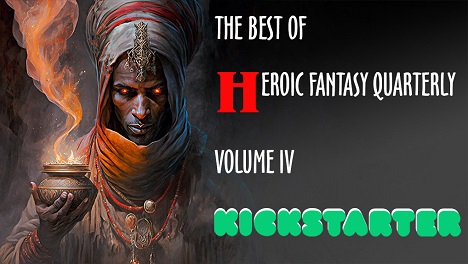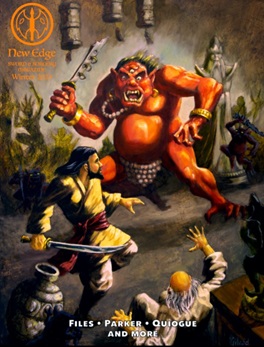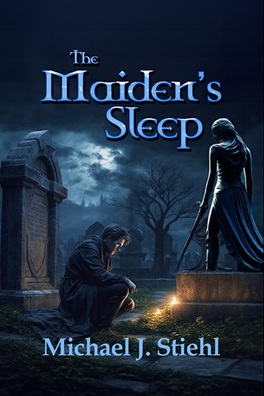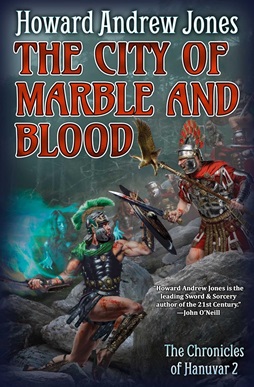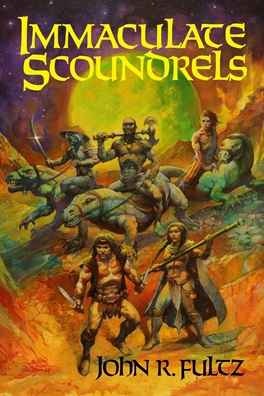GILGAMESH (WHAT THE SUMERIANS SEEM TO HAVE MISSED)
GILGAMESH (WHAT THE SUMERIANS SEEM TO HAVE MISSED) by David Sklar:
When first I sought my brother in the
Kingdom of the Dead, I did not
know exactly what I hoped to find.
Not forgiveness, for I
did not put him there. Not an
apology; he did not put me here.
But when I walked in darkness with no
stars to light my way
I came to know the magnitude of fear.
And fear was my companion
and fear my guiding star,
and fear was my provisions for the road;
the road that stretched before me
I could not see at all
but felt its smooth round stones beneath my feet.
And dark it was before me,
and dark it was behind,
with darkness to the left and to the right,
and dark it was above me
and dark it was below
without a moon or stars to track the time;
how long I walked in darkness
I have no way to know
with nothing to distract me from my fear.
And groping my way with the soles of my feet
I walked across the dark
and found a tiny cottage on a hill.
I did not know who dwelt there;
I had no way to know;
I only saw a light beneath the door.
I stood there in the dark, recalling
stories I’d been told
of those who walk in human form
but eat of human flesh.
And weak I was from hunger
and cold I was from fear,
but still I crossed the darkness to the door.
The man inside the cottage
said, “Put away your sword
and enter here in peace or not at all.”
I came inside and leaned my sword
beside the door. He asked,
“What do you seek?” I said, “My brother died;
therefore I know that I must die as well,
and lie upon the ground, as still as stone,
as limp as clay, and eaten by the earth.
“For I am firstborn of a fallen star,
but he was made directly by the gods,
crafted from the muddy earth,
swaddled in a wolf’s hide,
and sent to challenge my authority.
I solved their puzzle, made him come to me,
and he became my friend — became my brother —
and we subdued the wilderness together.
“Who knew he would die first? I did not know
that he would die at all. Without Enkidu,
who will sing my praises when I’m gone?
Who will make sacrifices to my spirit?
Who will uproot the weeds around my grave?
I dawdled in my youth with concubines,
I took the virgin brides before their grooms
but chose no queen — and so produced no heirs.
When darkness takes me, nothing will remain.”
This man said, “You will die, but you will live.
The great and small will sing of you, but more,
the markings the accountants use
to keep track of their money,
those, too, will tell your glory when you’re gone.
When your temple at Uruk is crumbled
and the Fertile Crescent a waste
subsisting on black sludge from ancient bones,
when your nation is fallen, and even the gods are gone,
the scholars will know who you are and what you have done.”
Be sure, I snatched my sword up from the door
and pressed the point against his throat and said,
“You think it glory to be known
by scholars and accountants?
Perhaps we’ll see how they remember you!”
And then the old man’s wife came in
and pleaded for his life, and said,
“Lord Gilgamesh, if you can stay
awake for seven days
you will not need to fear the touch of Death.”
I closed my eyes a moment to consider
then said, “I will begin.” She said, “Too late.
I baked a loaf of bread for you
each morning as you slept
and while you snored I placed it by your head.”
And to this day I don’t know how she did it,
but that old witch just pointed to the floor
and showed me seven loaves of bread,
the first fresh from the oven,
the second cold, the third already dry,
the fourth gone stale, the fifth brick-hard,
the sixth supporting mold,
the seventh like a moss-encrusted stone.
Such treachery! I had rested my eyes
For just a heartbeat. I reached for
my sword, but could not find it anywhere.
“I took it while you slept; I will
return it when you leave,”
she said. I could have killed her with my hands,
except her husband said to me,
“I know a better way,
a flower on the bottom of the sea,
and if you eat its blossom, you will
shed the weight of years,
and youth will fill your hands, your feet, your thighs.”
He took me on a massive boat
with room enough to carry
two of every creature in the world.
He tied a boulder to my feet;
he gave me back my sword;
he stood, and cast the boulder overboard.
It carried my weight through the depths of the sea;
past octopi and sharks,
past depths so dark the creatures there
produced light from within,
to where the sun was banished
and all the warmth there was
came upward from the hells beneath the Earth,
and, on the bottom, ringed by monstrous shells,
I found a purple flower with thorny leaves.
I grasped it by the blossom
and first I cut the stem
and then I cut my tether to the stone,
and, buoyed aloft by the air in my lungs,
I rose, then broke the surface
and gasped for breath and swam toward the shore,
and, winded at the seaside,
I took a moment’s rest
and looked again. The flower was no more.
But on the ground beside my hand
I found a serpent’s skin
discarded with a lifetime’s worth of dust.
I looked back across the ocean, but the
stranger now was gone
and all that stood before me was the
path of smooth round stones.
And so I undertook the journey home.
And dark it was before me
and dark it was behind
with darkness to the left and to the right
and dark it was above me
and dark it was below
with nothing to distract me from my thoughts:
I’d found the source of youth restored
and held it in my hand
and lost it for a moment’s needed rest.
And walking in the darkness
I heard a plaintive song
so beautiful it filled my heart with dread
but also pulled me closer.
I walked toward the sound
and found a man there, weeping on his knees,
producing rivers from his eyes,
and keening such despair
the trees around fell barren, and the
wood grew white as bone. I stood and
listened. He called forth the tears
to carve lines in my face.
And when his song had ended, and the
sky was blank and clear,
I touched the singer’s shoulder, and I
told him, “Do not fear:
the gods demand our misery; that is
why they made the world.”
And blank he looked into my face:
he had run out of tears.
Then, weary with disasters, tugged with fortune,
and having set my life on any chance,
I found the path and made my way back home
to rule my kingdom for a little while
but not much longer. Life is short, and walls
are stone. My scholars say the greatest quest
is always one that fails
but teaches wisdom. Scholars all are fools:
I undertook the greatest quest
and came home empty-handed,
but all I learned there was a song
I lack the art to sing.
And hucksters walk the city streets to sell
eternal life to those who will believe.
My daughter tells me I should go
and maybe try a sample,
but nothing they are selling interests me.
I’m finished with the city streets,
finished with transactions,
finished with eternal life,
and finished with belief. I want
no more, except the touch of her who waits
outside the door — you will not see her there —
but I, who took the brides before their grooms,
am bridegroom now, and waiting for a bride
whom many had before my turn,
who will take many others;
for all my life I’ve feared her touch. I fear
no more. Snuff out the candle. Let me sleep.
________________________________________________________
David Sklar writes in the spaces between the impossible magic of legend, the inscrutable magic of dreams, and the breathtaking everyday magic of the world in which we live. His publications include poetry in Bull Spec and Paterson Literary Review, short fiction in Strange Horizons and Triangulation: End of the Rainbow, and the novel Shadow of the Antlered Bird from Drollerie Press. He is currently coediting the two-headed anthology Trafficking in Magic/Magicking in Traffic for Drollerie Press. He works as a freelance writer and editor, and lives in New Jersey with his wife and two barbarians, aged 2 and 5.
You can read more about David at his website: http://davidwriting.com/
